| Article ID | Journal | Published Year | Pages | File Type |
|---|---|---|---|---|
| 2011768 | Pharmacological Reports | 2009 | 7 Pages |
The purpose of this study was to investigate the effect of NAD(P)H oxidase inhibitor – apocynin (4-hydroxy-3-methoxyacetophenone) on the increase of systolic blood pressure (SBP) in borderline (BHR) and spontaneously hypertensive rats (SHR). Young 6-week-old male BHR (offspring of SHR dams andWistar Kyoto sires) and SHR were treated with apocynin (30 mg/kg/day) for six weeks. SBP was measured by tail-cuff plethysmography. Nitric oxide synthase (NOS) activity was determined in the left ventricle and aorta. Protein expression of nuclear factor kappa B (NF-κB) and NAD(P)H oxidase subunits p67phox and p22phox as well as concentration of cGMPwere determined for the left ventricle. Apocynin significantly decreased SBP in all groups investigated. Administration of apocynin had no effect on NOS activity in either tissue studied. However, apocynin decreased protein expression of NF-κB (p65) and NAD(P)H oxidase subunit p22phox in both hypertensive groups and p67phox subunit in the SHR group. Moreover, apocynin was able to prevent a decrease in cGMP concentration in the left ventricle of both hypertensive groups. In conclusion, our study demonstrated that apocynin treatment partially prevented SBP rise in borderline and spontaneously hypertensive rats, yet without increasing activity of NOS in the left ventricle and aorta. However, apocynin was able to decrease production of reactive oxygen species in hypertensive rats; thus preventing the decrease in cGMP formation.
